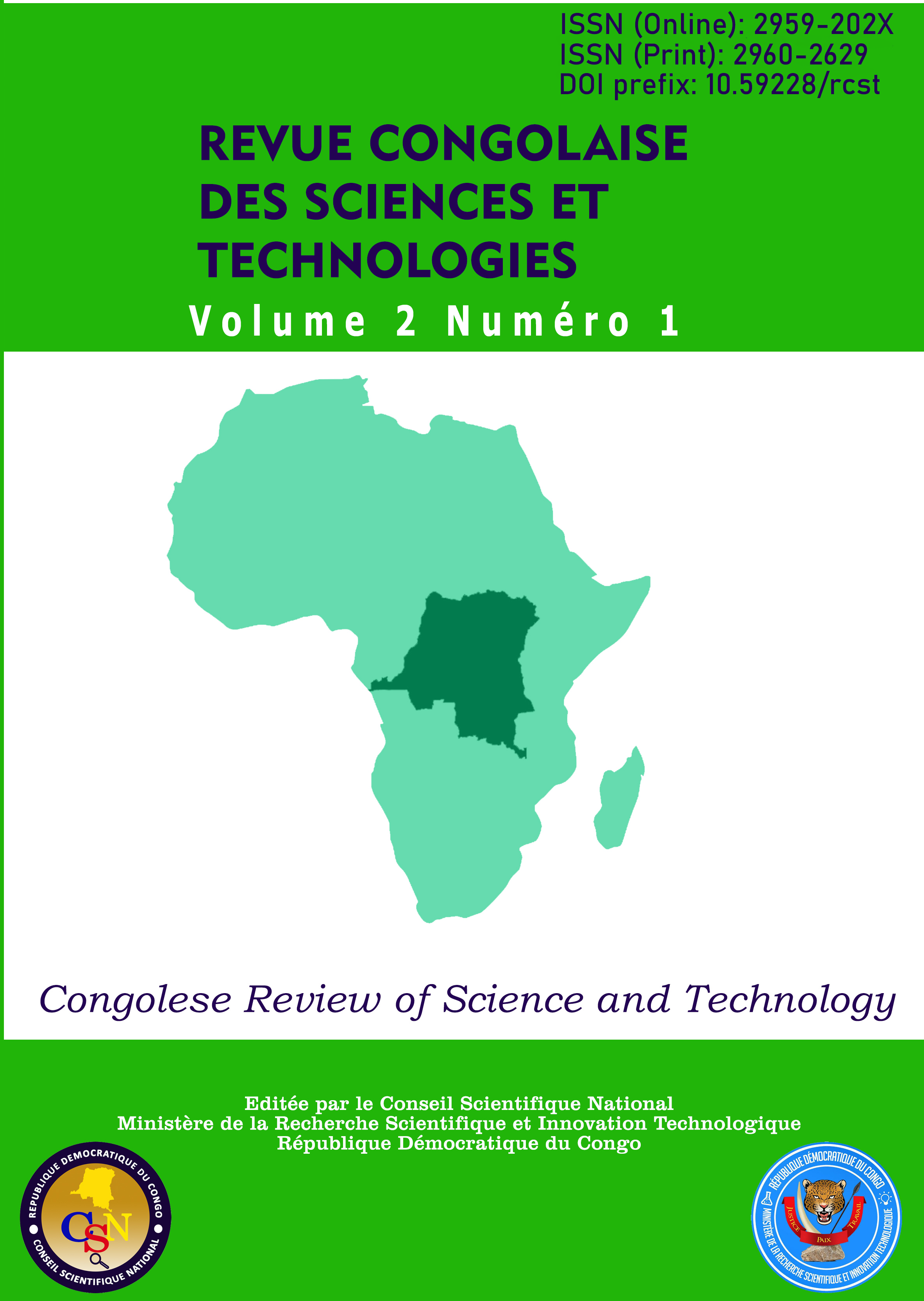Antioxidant Properties of Some Plants Extracts Used As Natural Sunscreen in the Formulated Cream
Main Article Content
Abstract
The aim of the present research is to study the antioxidant properties of eight seeds [carrot, Moringa oleifera, soya bean,
coconut, Cucurbita maxima (Ccm), palm walnut (Pmw), Vigna unguiculata called niebe and Citrullus lanatus (Ctl)] extracts
using radical DPPH as model in view of their possible application as antisolar agents. Ethyl acetate seed extracts were
prepared with methanol as solvent and the absorbance were recorded after reaction with the radical DPPH using UV-vis
spectrophotometer. The EC50, the antiradical power (ARP) and the stoechiometry of eight seeds extracts were determinated. It
was noticed that three of the tested herbal extracts namely carrot, Pmw and niebe showed some antioxidant properties. The
carrot extracts gave the better results with an EC50, an ARP and a stoechiometry of 1.12, 0.89 and 0.45 respectively. Five
seeds extracts (Ccm, moringa, Ctl, coconut and soya) didn't show antioxidant properties. Thus, the carrot extracts are most
active whereas five samples did not show reactivity towards radical DPPH.
Article Details

This work is licensed under a Creative Commons Attribution-NonCommercial-ShareAlike 4.0 International License.
References
Almey, A.A., Ahmed Jalal Khan, C., Syed Zahir, I.,
Mustapha Suleiman, K., Aisyah, M.R., and
Kamarul Rahim, K. (2010). Total phenolic
content and primary antioxidant activity of
methanolic and ethanolic extracts of aromatic
plants’ leaves. International Food Research
Journal, 17, 1077-1084.
Anitha, T. (2012). Medicinal Plants used in Skin
protection. Asian Journal of Pharmaceutical,
Clinical Research, 5(3), 35-38.
EL Bedawey A.A., Mansour, E.H., Zaky, M.S.,
Amal, A. & Hassan. (2010). Characteristics of
antioxidant isolated from some plants sources.
Food and Nutrition Sciences, 1, 5-12. doi:
4236/fns.2010.11002.
Gonzalez, S., Fernandez-Lorente M. & Calzada, Y.G.
(2008). The latest on skin photoprotection.
Clinics in dermatology, 26, 614-626.
Habrant, D. (2008). Synthèse et caractérisation de
nouveaux antioxydants, dérivés monoaromatiques d’acides pulviniques, pour des
applications en dermo-cosmétique [Thèse de
doctorat, Institut Gilbert Laustriat &
Université Louis Pasteur].
Kale, S., Gaikwad, M. & Bhandare, S. (2011).
Determination and comparison of in vitro SPF
of topical formulation containing Lutein
ester from Tagetes erecta L. flowers, Moringa
oleifera Lam seed oil and Moringa oleifera
Lam seed oil containing Lutein ester.
International Journal of Research in
Pharmaceutical and Biomedical Sciences,
(3), 1220-1224
Kessler, M., Ubeaud, G. & Jung, L. (2003). Anti-and
prooxydant activity of rutin and quercetin
derivatives. Journal of pharmacy and
pharmacology, 55(1), 131-142.
Lokapure, S.G., Salunkhe, S.D., Shenekar, P.N.,
Sutar, S.T., Ukirade, P.S., Mohite S.K., &Magdum, C.S. (2013). In vitro evaluation of
SPF, photostability and chemical stability of
Carica papaya L. fruit extract gel. Der
Pharmacia Sinica, 4(6), 43-47.
Mbanga, L., Mpiana, P.T., Mbala, M., Ilinga, L.,
Ngoy, B., Mvingu, K. & Mulenga, M. (2015).
Comparative in vitro Sun Protection Factor
(SPF) values of some herbal extracts found in
Kinshasa by Ultraviolet Spectrophotometry.
Journal of Physical and Chemical Sciences
(4), 1-6.
Mbanga, L., Mpiana, P.T., Mbala, M., Ilinga, L.,
Ngoy, B., Mvingu, K., Kapembo, L. &
Mulenga, M. (2015). Determination and
comparison of in vitro Sun Protection Factor
of some seeds marketed in Kinshasa (DR
Congo) using UV-vis Spectrophotometer.
Advances in Biochemistry & Biotechnology, 1,
-14.
More, B.H., Sakharwade, S.N., Tembhurne, S.V. &
Sakarkar, D.M. (2013). Evaluation of
sunscreen activity pf cream containing leaves
extract of Buteamonosperma for Topical
application. International Journal of research
in Cosmetic Science, 3(1): 1-6.
Rishi, A., & Sneha, S. (2012). Antioxidant activity of
various plant part extracts of G superb L and
U., Indica (Roxb) Kunth. Research Journal of
Pharmaceutical Biological and Chemical
Sciences.
Saraf, S. & Kaur, C.D. (2010). Phytoconstituents as
photoprotective novel cosmetic formulations.
Pharmacognosy Reviews, 4(7), 1-11.
Shenekar, P.N., Ukirade, P.S., Salunkhe, S.D., Sutar,
S.T., Magdum, C.S., Mohite, S.K., Lokapure,
S.G., Metri, S.M. (2014). In vitro evaluation
of sun protection factor of fruit extract of
Carica papaya L., as a lotion formulation.
Euro. J.Exp.Bio., 4(2), 44-47.
Shweta, K.G., Rajan, B.M., Urwashi, K.P., Blessy,
M. & Hitesh, NJ. (2011). Herbal plants used
as a cosmetics. Journal of Natural Product
and Plant Resources, 1(1), 24-32.
Vertuani, S., Ziosi, P., Toso, R.D., Vicentini, C.B. &
Manfredini, S. (2013). Dualistic properties of
cosmetic formulations based on phenyl
propanoids from Ajugareptans. Journal of
Cosmetics, Dermatological Sciences and
Applications, (3), 64-72.

